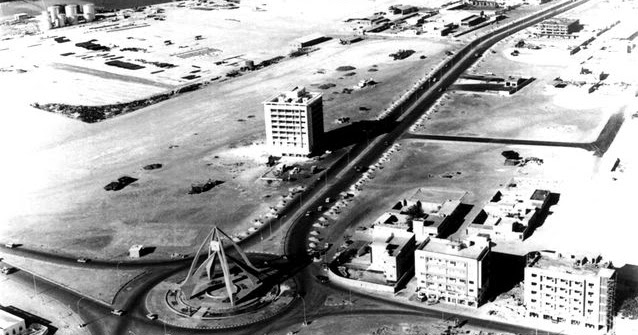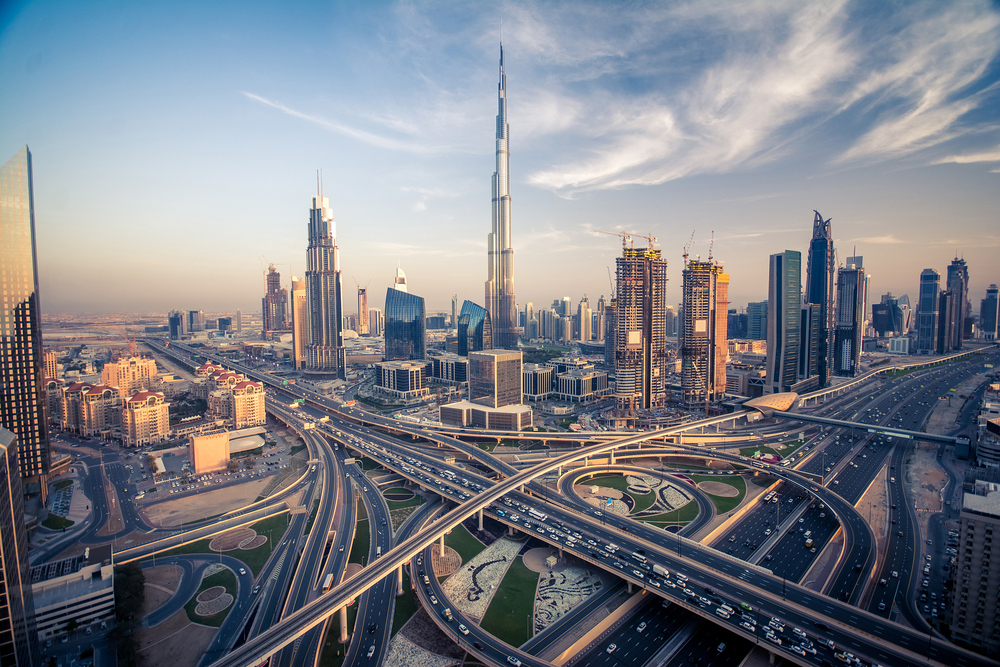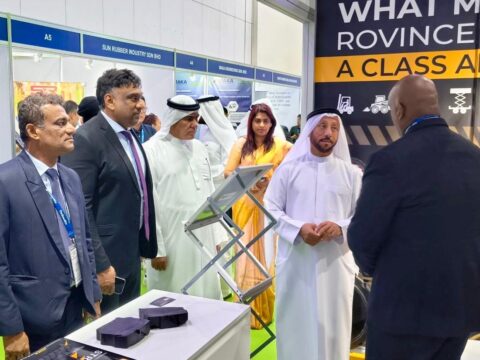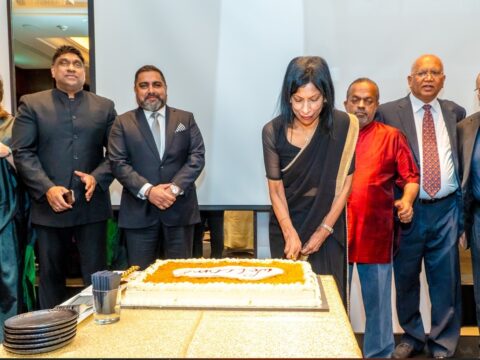A prominent personality in the Sri Lankan community in the United Arab Emirates, Farook Kassim has been based in Dubai for over 42 years. He is an old boy of Royal College, Colombo, Sri Lanka and is an alumnus of Harvard Business School, Boston, USA. Farook is a serial entrepreneur and is a Founder Member and ex-Chairperson of the Sri Lanka Business Council in Dubai and the Northern Emirates. He is a well-travelled person, having visited over 100 countries.
I first arrived in Dubai in 1975 at the tender age of seventeen. I had made it my life’s mission to leave my home in Colombo, venture out and see a new part of the world, all whilst earning enough money to buy a brand new fancy car once I got back home. I was mesmerised by the possibilities that Dubai presented. As a budding entrepreneur, it felt like Dubai was on the cusp of interesting possibilities, which pushed me to figure out how to set up and build my own business in what at the time was a very foreign land.
In the mid-18th century, a small village was established in the lower Persian Gulf, where people would take a boat out off the coast and dive into the crystal blue waters to bring up a dazzling array of pearls. Indistinct and yet to give away any clues as to what was to come, the village quietly accumulated a cosmopolitan population washing up from the shores of Persia, the Indian subcontinent and from further afield in the Arabian peninsula. The village was eventually named after a local locust, the daba, which consumed everything before it – a fitting name for the city with limitless ambition that Dubai has become today.
Village gave way to a bustling trading port that was held by the British Empire until 1971, when the tiny sheikhdom came together with its six neighbors to form the United Arab Emirates. As the British formally quit the region, oil was being discovered and would forever change the face of the region.
Dubai’s oil reserves were small in comparison to Abu Dhabi, leading Sheikh Rashid bin Saeed Al Maktoum, widely acknowledged as the founder of modern Dubai and the first Vice President of the UAE, to embark on an outlandishly bold strategy of building a hub for trade, shipping, aviation, tourism and financial services – all at the geographic centre of the world. His son, Sheikh Mohammed bin Rashid Al Maktoum who officially took over in 2006 has turned Dubai into a global icon: the city that sprang from the desert inside a generation.

There was perhaps one or two Sri Lankan founded and operated business
in the UAE when I arrived, but there were a number of Sri Lankan expatriates most of whom were professionals specializing in banking, shipping, oil and gas, and eventually hoteliers, lawyers, engineers, aviation specialists and accountants, spread across the professional spectrum.
In the 1970’s, actually setting up a business was not difficult. Issue a bank guarantee amounting to $27,000 (AED 100,000) and a short while later you have a 100% foreign owned trading entity without the need for a local partner or sponsor.

We set up a general goods store in 1975, naming it al bogari Trading Company. The name doesn’t carry much meaning aside from being something that my older brother saw etched on the side of jerry can in Saudi Arabia. It felt like a nice name and eventually stuck.
Given the small Sri Lankan community at the time, we would try to help each other out by passing on job referrals or by providing assistance in establishing oneself in the community. I remember helping out a mature gentleman who previously was a helicopter mechanic in the Sri Lankan Air Force and was finding it difficult to find a job to match his particular skill set. With a little bit of financial credit, he turned into a part time trader of Hungarian soap and eventually found the right full time role. A number of Sri Lankans would and continue to use Dubai as their first springboard into moving out West. This particular gentleman eventually emigrated to Canada after spending a few years in Dubai.
In 1977, the Ceylon Tea Board as it was known at the time established an office in Deira (considered the heart of old Dubai today) and would kindly lend out its offices every week for the Sri Lanka Embassy staff in Abu Dhabi to drive down and set up temporary consular operations for the Sri Lankan community in Dubai. The opening of the Embassy in Abu Dhabi in July 1979 eventually led to a Consular office in Dubai in 1993, which was eventually upgraded to a Consulate General in 1999.
The addressing system in Dubai was non-existent and we’d use popular landmarks such as the Trade Centre and the Pagoda Villa in Jumeirah to direct ourselves to each other’s homes. The community would meet on festive occasions or to mark an important event whether it be from home or one from our adopted home. Ringing home with a cable and wireless operator would usually be a two or three day operation and letters and packages would take two to three weeks to reach Sri Lanka.
Whenever someone was going back home, he or she would become the designated courier for that week’s mail and some packages if they had the space. I also remember my parents visiting me after some of the first direct flights between Sharjah and Colombo were kicked off by Air Ceylon around 1977 or 1978. The airline was sadly liquidated on the 31st of August 1979, due to bankruptcy and hopefully not due to its far forays into the UAE.
In the early eighties, the first Sri Lanka restaurant, Peacock, opened in Karama, set up by a Sri Lanka entrepreneur whose day job with etisalat, the UAE’s sole telecoms operator at the time, actually paid the bills. I recall him working hard during the evening and on his weekends. Today, Dubai alone boasts at least eleven Sri Lankan restaurants. There are around 380 Sri Lankan businesses registered in Dubai and more in other emirates.
As the nineties rolled around, the UAE opened up from an investment and growth perspective. This attracted more Sri Lankans to move out to both work and invest in the country. In 1991, we founded the Sri Lanka Business Council in Dubai and the Northern Emirates, to push forward the collective needs of both Sri Lankan entrepreneurs as well as professionals. Our vision was and remains to support and promote the growth of trade, investment, technical and economic co-operation, employment and tourism between the UAE and Sri Lanka. In 2004, the organisation was formally registered as a business council under the umbrella of the Dubai Chamber of Commerce and Industry.
2012 saw President Mahinda Rajapaksa officially visit the UAE, the first by a Sri Lankan head of state. He also attended the World Energy Forum that took place at the time and met with the Sri Lankan community at one of the city’s nicest hotels, the Grand Hyatt.

As Dubai has exploded onto the list of global cities with over 200 nationalities living here, Sri Lankans continue to establish themselves in both the city, as well as the country. It’s estimated that the diaspora today measures over 330,000 strong across the UAE.
I’m personally proud to have played a small part in the incredible city that Dubai has become. The rise from sleepy trading port to an international hub for trade, services and tourism. I’m yet to a own a car in Colombo, but that’s life!
(This article first appeared in the Sri Lankan Day 2018 commemorative book that was published on the occasion of Sri Lanka’s 70th Independence Day and 25 years of the establishment of Sri Lanka’s Consulate General in Dubai and the Northern Emirates.)




